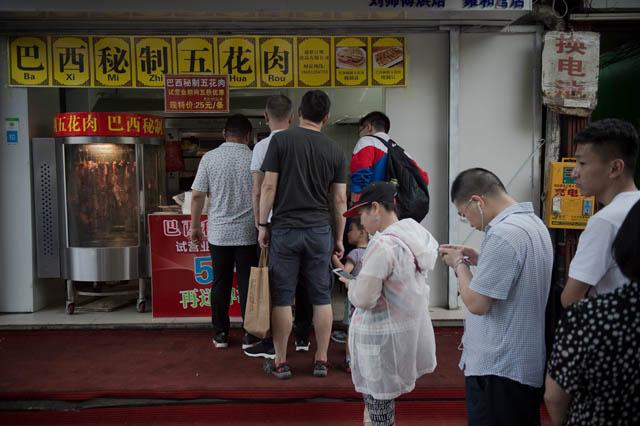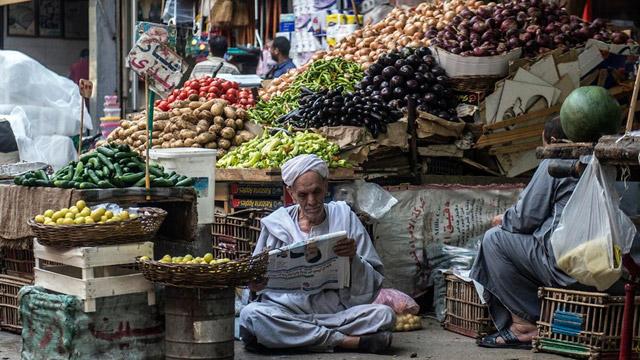You are here
IMF raises China growth forecast, urges faster reforms
By AFP - Jun 14,2017 - Last updated at Jun 14,2017

People queue to buy takeaway food on a street in Beijing on Wednesday (AFP photo)
BEIJING — China must quicken the pace of reforms and do more to curb rising debt, the International Monetary Fund (IMF) said on Wednesday as it raised its growth forecast for the world’s number two economy.
The International Monetary Fund expects China to expand by 6.7 per cent this year, faster than its previous estimate of 6.6 per cent due to expanding credit and investment.
That would match last year’s growth rate, which was the slowest in a quarter of a century.
The economy is then expected to slow to an average of 6.4 per cent expansion between 2018 and 2020.
After years of blistering growth, China’s economy has been slowing as it moves from an investment and export-driven model to one more reliant on consumer spending.
However, Beijing’s Belt and Road infrastructure project, for which the government has earmarked hundreds of billions of dollars, has raised concerns it may be retreating from the difficult transition.
David Lipton, the IMF’s first deputy managing director, said it was “critical” that China capitalises on its still-strong pace of expansion to speed up reforms.
“While some near-term risks have receded, reform progress needs to accelerate to secure medium-term stability and address the risk that the current trajectory of the economy could eventually lead to a sharp adjustment,” Lipton told reporters at the end of a two-week visit to China.
The IMF also called on Beijing to do more to rein in soaring credit, warning that runaway lending could lead to a bad debt problem if borrowers default on their loans.
China’s overall debt liabilities, which include corporate and household borrowing, are above 260 per cent of gross domestic product compared to about 140 per cent before the 2008 financial crisis.
When the debt-to-GDP ratio “rises quickly, when that rise gets beyond certain bounds, there tends to be vulnerabilities and a greater probability of crisis”, Lipton said.
The IMF also urged Beijing to phase out support for underperforming state-owned enterprises (SOEs) and so-called zombie companies — those firms that survive only on rolling credit from the banks.
Lumbering SOEs and debt-choked companies have been a drag on the economy. While the government recognises the need for restructuring, it also fears mass lay-offs and social instability.
Related Articles
BEIJING — The International Monetary Fund (IMF) on Thursday warned of brewing risks in China's banking system as it found dozens of crucial
BEIJING — China has never said the economy must grow 7 per cent this year, Premier Li Keqiang said in comments reported by the government ah
CAIRO — The International Monetary Fund (IMF) has approved a second tranche of a $12 billion loan to Egypt, praising the country's tough eco


















